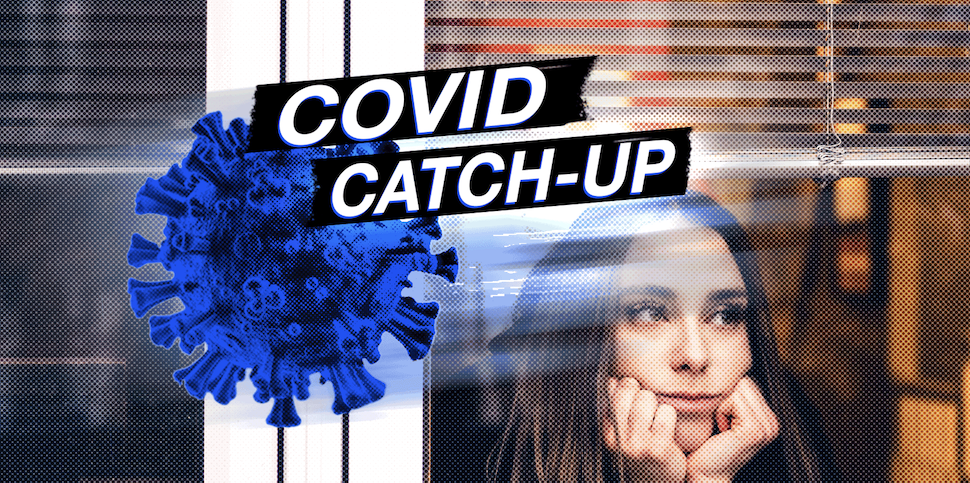Plus autoantibodies interfering with immune response, confirmed reinfections and continued dispensing arrangements.
Welcome to Allergy & Respiratory Republic‘s COVID Catch-Up.
It’s the week’s COVID-19 news into one convenient post. Email bianca@biancanogrady.com with any tips, comments or feedback.
-
- An Australian study has used whole genome sequencing to provide further evidence of in-flight transmission of COVID-19.
Writing in Emerging Infectious Diseases, researchers reported the findings of a study of 29 passengers on board a domestic flight from Sydney to Perth who later tested positive for SARS-CoV-2, 19 of whom had recently disembarked from cruise ships including the Ruby Princess and nine of these were considered to have been infectious during the flight.
The remaining ten positive cases were either international travellers transiting through Australia or domestic travellers with no connection to the cruise ships.
Altogether there were 18 primary cases – all but one from cruise ships – and 11 secondary cases, eight of which were judged to have resulted from in-flight transmission. Sequencing of 25 of the cases revealed that 20 were clustered with the Ruby Princess, and this sequence had not been recorded anywhere else before that outbreak.
Of the 11 secondary cases, eight were seated within two rows of the infectious Ruby Princess passengers, three were three rows away, and one was six rows away. Two-third of the secondary cases had window seats. - Around one in ten individuals with severe COVID-19 appear to be generating antibodies against their own immune response to the virus, according to a study published in Science.
The study, which is the first paper to come from the international COVID Human Genetic Effort project to understand the virus and disease from a genetic viewpoint, looked for autoimmune antibodies against a class of immune signalling proteins called interferons, which the immune system produces in response to viral infection.
Autoimmune response against type 1 interferons had been previously seen in three people with severe COVID-19, so researchers then looked for antibodies against these interferons in 987 individuals hospitalised with life-threatening COVID-19 pneumonia, 663 individuals with mild or asymptomatic COVID-19, and 1227 healthy control samples collected before the pandemic.
This revealed that 135 (13.7%) of the individuals with severe COVID-19 had neutralising antibodies against at least one type 1 interferon, compared to just 0.33% of individuals in the healthy control group. The antibody-positive group also contained a much higher proportion of men than the group of patients with severe COVID-19 but without these antibodies.
Even though SARS-CoV-2 doesn’t generate strong type 1 interferon response, the authors suggested that these interferons were critical for immune response to infection.
“The neutralizing auto-Abs against type I IFNs, like inborn errors of type I IFN production, tip the balance in favor of the virus, resulting in devastating disease, with insufficient, and even perhaps deleterious, innate and adaptive immune responses,” they wrote.
The finding could have implications for management and treatment of COVID-19. The authors suggested it could be used to screen for patients likely to experience more life-threatening illness, but also meant individuals with these neutralising antibodies should be excluded from donating convalescent plasma. - Two healthcare workers in India have been reinfected with genetically different strains of SARS-CoV-2, according to a report in Clinical Infectious Diseases.
The two workers, both in their twenties, were working at a COVID-19 unit in a hospital when they tested positive for SARS-CoV-2. They were asymptomatic but were hospitalised and released a week or two later after testing negative. Both then tested positive again three and four months later, again with asymptomatic disease but with a higher viral load than in their first infection. Genomic sequencing revealed each had a genetically different strain for their second infection compared to their first, which the authors said ruled out the second positive tests as being the result of persistent viral shedding or reactivation. - Continued dispensing arrangements will now continue until March 2021 to “support continuity of therapy for consumers who are unable to access their medical practitioner to obtain a valid prescription,” the PBS has announced.
The arrangements – which allow patients to obtain one continuation in 12 months of an existing prescribed PBS medicine without a prescription if they can’t obtain one – were introduced during the 2019/2020 bushfires, extended throughout the COVID-19 pandemic, and have now been further extended.
- An Australian study has used whole genome sequencing to provide further evidence of in-flight transmission of COVID-19.
Get Bianca’s daily COVID Catch-Up at medicalrepublic.com.au.



